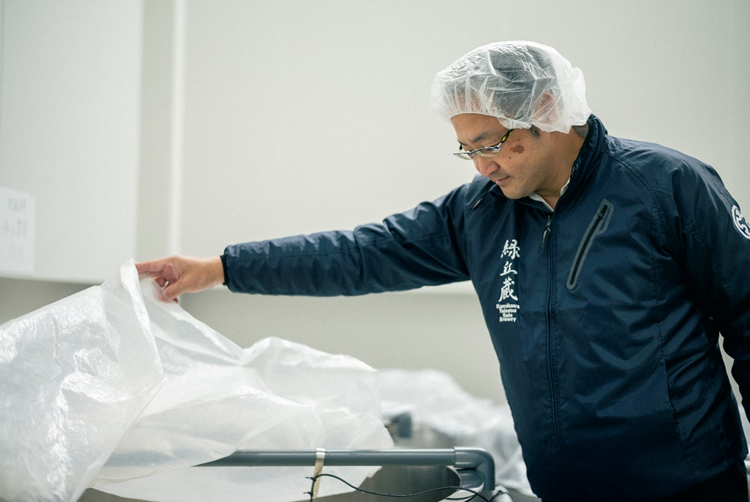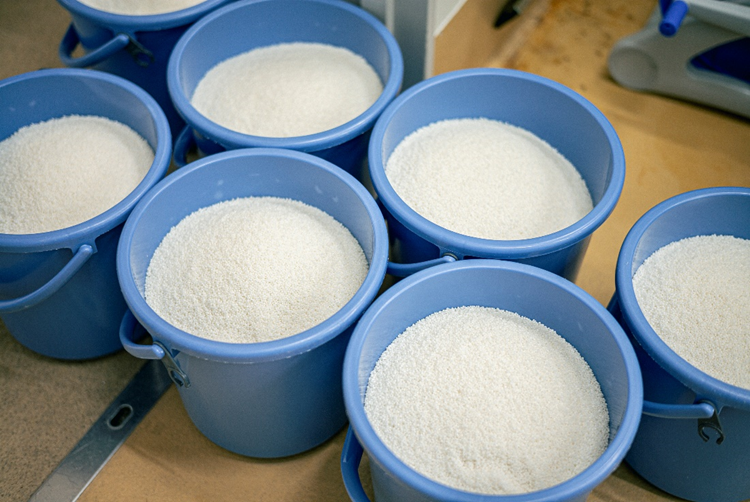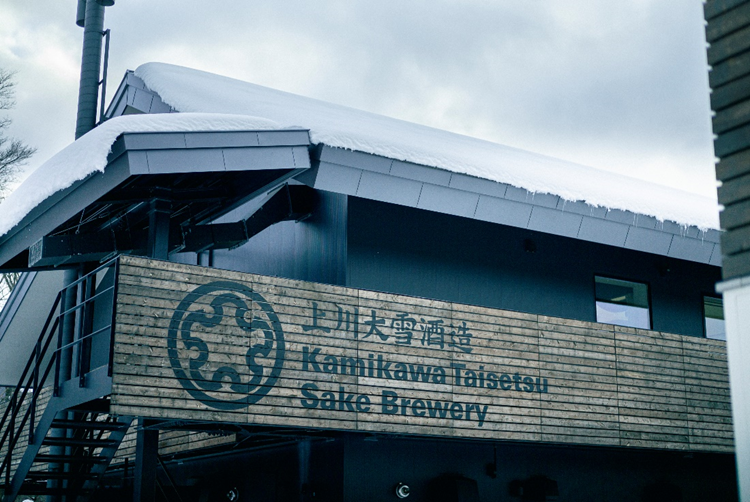
Kamikawa, located about 50 minutes away from central Asahikawa, is an unassuming little township flanked by the majestic Daisetsuzan mountain range and featuring a small hot spring resort at Sounkyo. Dotted with local bars and Ramen shops, it is one of many quaint localities that has been struggling with the combination of depopulation and an ageing population. Indeed, its population has decreased from a peak of almost 16,000 in the 1960s to a little over 3,300 today. It is thus a rather unlikely locale to be home to not only a Michelin-starred Italian restaurant, but also an up-and-coming Sake brewery. We spoke to the man who was instrumental to make both ventures happen, and how he fell in love with Kamikawa and is actively hoping to revitalize the town.
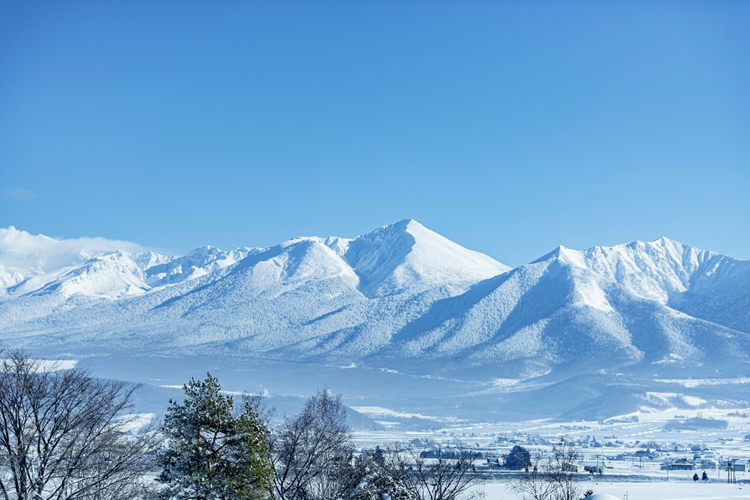
For the better part of his adult life, Toshio Tsukahara was a “salary man” in Tokyo, working for Nomura Securities and then as a headhunter.When his friend Kiyomi Mikuni, a renowned chef, approached him about opening a restaurant in their home of Hokkaido, he did not know how to react. “Of course, I was interested. But I did not know anything about running a restaurant, and while I had heard of Kamikawa, I wasn’t even aware there was a town here. I thought it was all mountains” recalls Tsukahara. “He just told me to incorporate, and I went for it.”
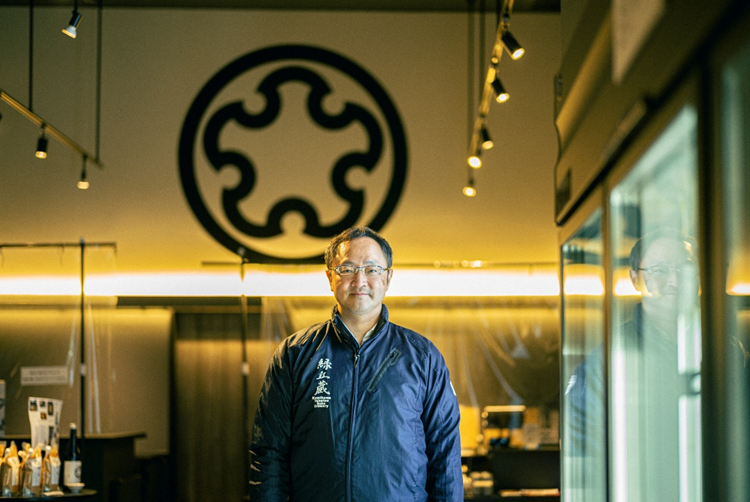
Kamikawa was always going to be a difficult location to launch a successful business. “Even though the nature here is beautiful and the mountains have perfect snow, the status of Daisetsuzan as a National Park makes it impossible to open a ski resort, for example.” That is how the idea for the restaurant came to be. “Our goal from the beginning was to add something to the local community, to build something sustainable – creating a fine dining destination utilizing local ingredients seemed like a good idea.” But it did not prove to be that easy. While Fratello di Mikuni was critically acclaimed and eventually awarded a Michelin star, the location proved too remote for a steady inflow of customers. A piece of the puzzle seemed to be missing.
“I started Kamikawa Taisetsu Sake Brewery in 2017 simply to be able to pay the salary of the employees at the restaurant” says Tsukahara. He enlisted Shinji Kawabata, a former winner of the Gold Prize at the Annual Japan Sake Awards, as chief brewer, and launched what would become one of the most successful rural revitalization projects in Hokkaido. “We did not forget our prime objective, which was to revitalize the town. That is why one of our philosophies is to make our customers come to Kamikawa to taste our Sake. We barely even sell in nearby Asahikawa, choosing instead to provide our products at our store here as well as local convenience stores and liquor stores in Kamikawa.” But why did Tsukahara want to make Sake, when Hokkaido is more renowned for whiskey, beer, and wine?
“Sake is made of two primary ingredients, water and rice. The water coming from Daisetsuzan is pristine and perfect to make Sake, while Hokkaido is one of the country’s largest rice producing districts in Japan. It just made sense.” Despite this, Hokkaido only had 11 Sake breweries when Tsukahara opened Kamikawa Taisetsu. “We became the twelfth sake maker in Hokkaido, and the first to open in the post-war period. Also, while other breweries use rice imported from Honshu (the main island of Japan), we were firm in our commitment to Hokkaido’s “Sakamai” (rice used for sake brewing).”
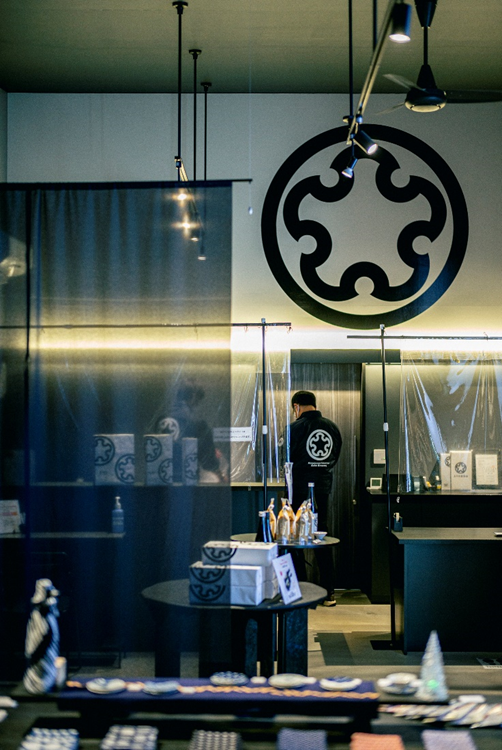
“In addition, local Sake is a very nostalgic thing for many Japanese. In the pre-war period, there were local Sake breweries all over Japan, and in major producing areas we still have this dynamic. In Hokkaido, however, this culture all but disappeared. There were only 11 breweries for a population of about 5 million.” Tsukahara also may have hit the zeitgeist, in a sense. “We are living in an era of neolocalism. Whether you are living or visiting an area, people these days increasingly want to buy local, support local communities. So, in a way, we are hitting a modern nerve.” Indeed, Tsukahara had an interesting source of inspiration for his brewery.
“I am aiming to became something like Brooklyn Brewery, which was initially built with the express goal to revitalize a downtrodden area of Brooklyn” says Tsukahara. “Today, Brooklyn Brewery is even sold in convenience stores in Tokyo, but at the beginning you had to drink it on location at their brewery.” There are even more parallels between the two breweries. “Sake and beer brewing are similar in the sense that they both add value to their ingredients in the brewing process. This is opposite to wine, which is more about the farming.” Everything Tsukahara says seems to be rooted in some logic, and it is his businessman attitude combined with his localism that permeates every aspect of his ventures.

“We wanted to make Kamikawa a brand, a destination. That is why we decided to put Kamikawa in the name, and why we are selling our Sake locally. As they say, if you build it, they will come.” So, what is the best way to enjoy the fruits of Tsukahara’s labor? “Of course, I want you to come to Kamikawa, buy some Sake at our store or somewhere in town and enjoy it at the Sounkyo hot springs. It is a little bit out of the way, but if you also make it to Mikuni’s restaurant, you can stay a whole weekend.” Four years in, Tsukahara seems to have finally found the winning combination to both run a successful business and give something back to the local community. Indeed, he is already exporting his model to other places in Hokkaido, opening two more Sake breweries in Tokachi and Hakodate.
“I love my home, Hokkaido. It is all about revitalizing local areas, about adding some fire to these communities.” We, for one, cannot wait what Tsukahara has in store next.
